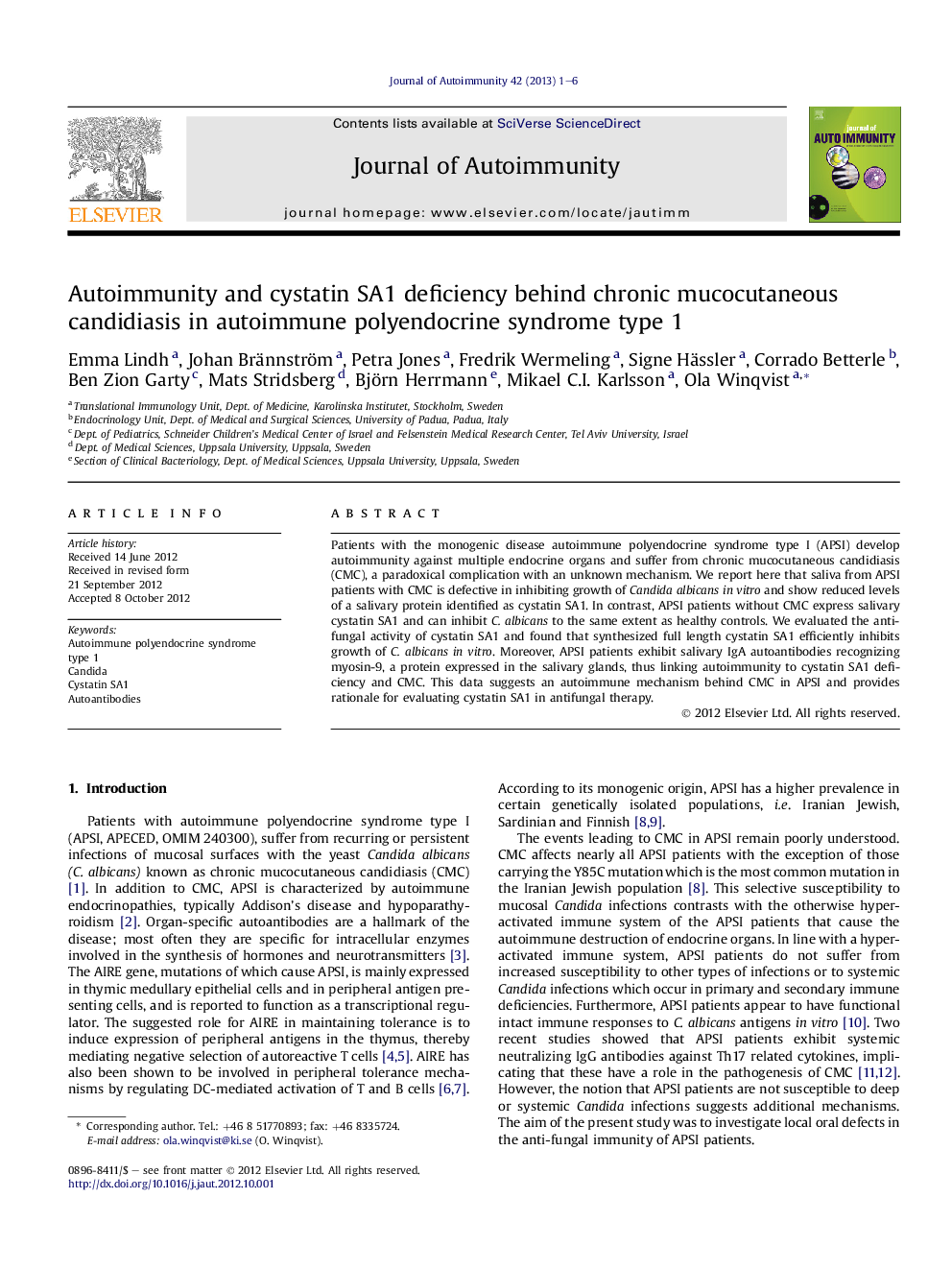| Article ID | Journal | Published Year | Pages | File Type |
|---|---|---|---|---|
| 3367876 | Journal of Autoimmunity | 2013 | 6 Pages |
Patients with the monogenic disease autoimmune polyendocrine syndrome type I (APSI) develop autoimmunity against multiple endocrine organs and suffer from chronic mucocutaneous candidiasis (CMC), a paradoxical complication with an unknown mechanism. We report here that saliva from APSI patients with CMC is defective in inhibiting growth of Candida albicans in vitro and show reduced levels of a salivary protein identified as cystatin SA1. In contrast, APSI patients without CMC express salivary cystatin SA1 and can inhibit C. albicans to the same extent as healthy controls. We evaluated the anti-fungal activity of cystatin SA1 and found that synthesized full length cystatin SA1 efficiently inhibits growth of C. albicans in vitro. Moreover, APSI patients exhibit salivary IgA autoantibodies recognizing myosin-9, a protein expressed in the salivary glands, thus linking autoimmunity to cystatin SA1 deficiency and CMC. This data suggests an autoimmune mechanism behind CMC in APSI and provides rationale for evaluating cystatin SA1 in antifungal therapy.
► Saliva from APSI patients has reduced anti-fungal activity. ► APSI patients have reduced levels of the salivary protein Cystatin SA1, which can inhibit growth of Candida albicans in vitro. ► Patients with APS1 have autoreactivity against the salivary glands that express Cystatin SA1. ► Candida infections in APSI can be explained by organ-specific autoimmunity.
